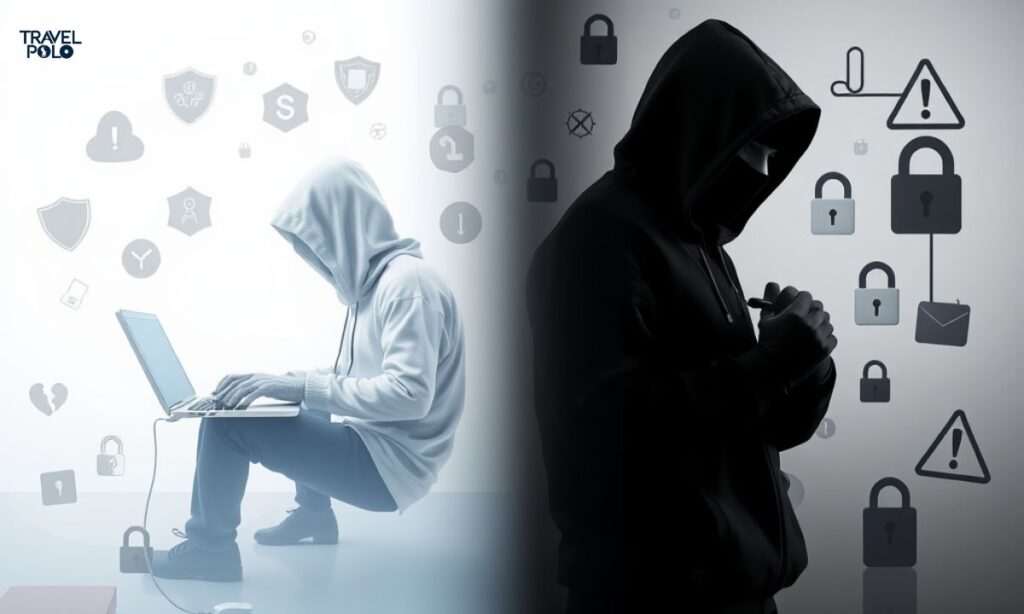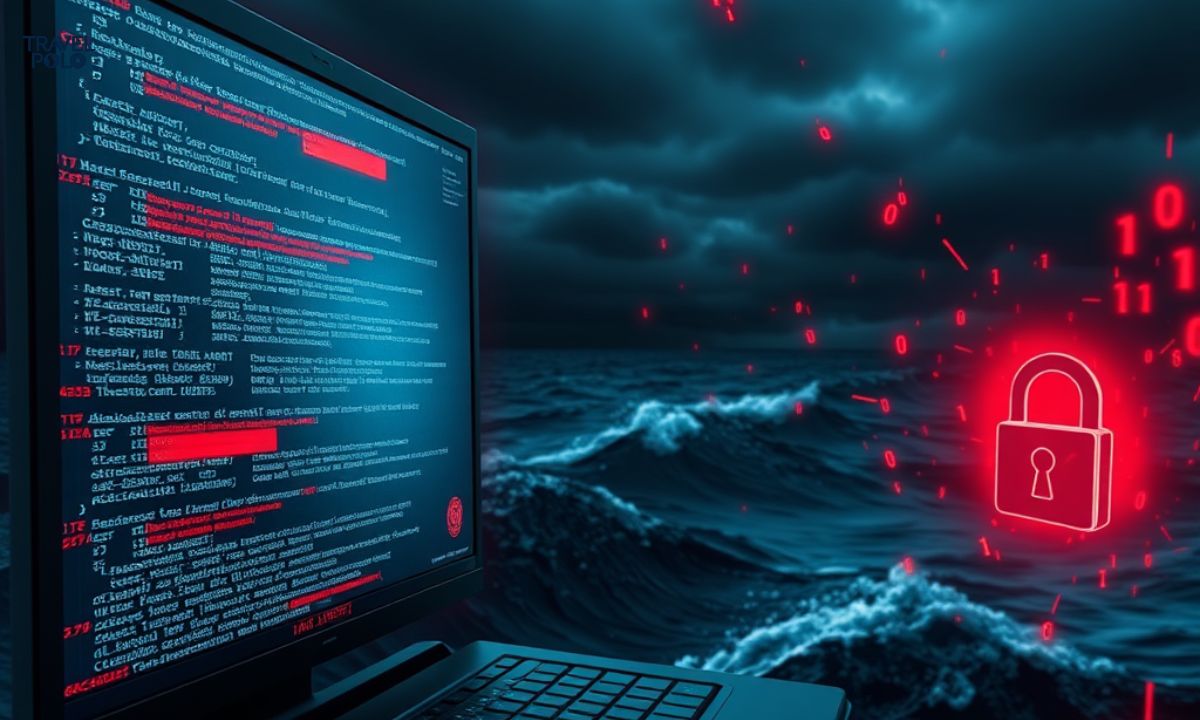The AIO-TLP287 leak from TheJavaSea.me is a major data breach that exposed sensitive user information. Such incidents raise serious concerns about online privacy and security. Cybercriminals often steal and sell this data, leading to fraud and identity theft.
Many laws exist to protect user information, but breaches still happen. This leak also brings up ethical questions about hacking and data exposure. Some believe that revealing security flaws helps improve protection, while others see it as a serious crime.
Whistleblowers may expose wrongdoing, but leaking private user data can cause harm. The debate between security, transparency, and privacy continues.
Understanding the Legal Consequences of the AIO-TLP287 Leak
The AIO-TLP287 data breach raises significant legal concerns, with potential violations of international data protection laws such as GDPR and CCPA. Companies failing to safeguard user data may face heavy fines, lawsuits, or operational restrictions.
Additionally, hackers involved in unauthorized access and data distribution risk criminal prosecution, including imprisonment and financial penalties. Legal actions may extend across borders, leading to international law enforcement cooperation.
Violations of Data Protection Laws
Governments worldwide have enacted strict data protection regulations to safeguard user privacy. The AIO-TLP287 leak may have violated several laws, including:
- General Data Protection Regulation (GDPR) [Europe] – Non-compliance with data protection measures can result in penalties of up to €20 million or 4% of a company’s annual revenue.
- California Consumer Privacy Act (CCPA) [USA] – Grants users the right to sue companies failing to protect their personal data.
- Personal Data Protection Bill [India] – Imposes hefty fines on organizations mishandling user data.
- Pakistan’s PECA Act – Criminalizes unauthorized data breaches and cybercrimes, imposing strict penalties.
Legal Consequences for Hackers & Data Distributors
Hackers and entities involved in the distribution of leaked data face severe legal repercussions under cybercrime laws, including:
- Imprisonment – Depending on jurisdiction, cybercriminals may face up to 10+ years in prison for data theft.
- Financial Penalties – Heavy fines may be imposed on individuals or organizations involved in the dissemination of stolen data.
- International Extradition – If cybercriminals operate from different jurisdictions, extradition requests can be filed for legal action.
Read This Blog: Newznav.com: Building Digital Trust – 888-414-1045
Ethical Considerations: White Hat vs. Black Hat Perspectives

The breach highlights the ongoing ethical debate between cybersecurity experts and cybercriminals. While white-hat hackers work to identify vulnerabilities and protect users, black-hat hackers exploit these weaknesses for personal gain.
The role of whistleblowers is also controversial—some leaks expose corporate malpractice, but others compromise user privacy. Striking a balance between transparency and ethical responsibility remains a critical challenge in cybersecurity.
The Role of Ethical Hackers
Ethical hackers (white-hat hackers) often identify vulnerabilities to help organizations improve security. However, when a breach like AIO-TLP287 occurs:
- Should ethical hackers intervene to mitigate further risks?
- Is it ethical to publicly disclose security flaws at the risk of harming users?
The Dilemma of Whistleblowers & Data Transparency
Leaks sometimes reveal corporate misconduct, but they can also expose private user data, leading to ethical conflicts:
- Transparency vs. Privacy – Should whistleblowers release sensitive data if it may harm individuals?
- Public Interest vs. Malicious Intent – At what point does exposing information serve justice rather than aiding cybercriminals?
Read This Blog: Tommy Caldwell 2025: Net Worth, Salary, and Earnings
The Role of Dark Web Marketplaces in Spreading Leaked Data
Dark web marketplaces play a key role in distributing stolen data, allowing cybercriminals to sell financial details, personal identities, and corporate secrets. Breached information is often first shared on underground forums before being auctioned off on illegal platforms.
These transactions fuel identity theft, fraud, and corporate espionage, making data leaks even more dangerous. Law enforcement agencies continuously monitor these networks, but shutting them down remains a challenge.
How Data Leaks Enter Dark Web Marketplaces?
Once a breach occurs, stolen data often follows a structured path:
- Hacker Forums – Initial distribution occurs within underground cybercriminal communities.
- Dark Web Marketplaces – Cybercriminals monetize stolen information by selling it illegally.
- Public Torrent & Paste Sites – Some leaks become freely accessible, worsening the impact.
Who Profits from Leaked Data?
Cybercriminals and illicit entities benefit financially from stolen data through:
- Selling Financial Data – Credit card details and banking credentials are traded for fraud.
- Identity Theft & Fake Documents – Personal information is used to create fake IDs or commit crimes.
- Corporate Espionage – Competing businesses may exploit stolen trade secrets.
Mitigating Legal & Ethical Risks: What Can Be Done?

Preventing future data breaches requires a collaborative effort between governments, businesses, and individuals. Governments must enforce stricter cybersecurity laws and enhance international cooperation. Companies should invest in advanced security measures like encryption, multi-factor authentication, and employee training
For Governments & Regulators
- Strengthen global cybersecurity laws and enhance cooperation between nations.
- Enforce data protection standards, promoting encryption and multi-factor authentication.
- Deploy AI-driven cybersecurity tools to monitor and shut down illegal marketplaces.
For Businesses & Organizations
- Invest in robust cybersecurity infrastructure, including firewalls and regular security audits.
- Conduct employee training on best practices for data protection.
- Establish incident response plans to handle potential breaches effectively.
For Individuals
- Use strong, unique passwords and consider password managers for better security.
- Monitor credit reports and personal data for identity theft risks.
- Avoid sharing sensitive information online to minimize exposure.
Frequently Asked Questions
What was leaked in the AIO-TLP287 breach?
The leak reportedly included sensitive user data such as login credentials, financial information, and personal details.
Who is responsible for the AIO-TLP287 breach?
The exact perpetrators remain unknown, but cybersecurity analysts suggest involvement from underground hacking groups.
Can affected users take legal action?
Yes, under GDPR, CCPA, and other data protection laws, affected users may have the right to seek legal recourse.
How can businesses prevent similar breaches?
Implementing end-to-end encryption, regularly updating security protocols, and conducting vulnerability assessments can reduce risks.
Final Words
The AIO-TLP287 leak from TheJavaSea.me highlights the growing challenges of cybersecurity, legal accountability, and digital ethics. As data breaches become more frequent, stronger regulations, ethical cybersecurity practices, and proactive defense strategies are essential.
Governments, businesses, and individuals must work together to prevent unauthorized data exposure and mitigate risks. A balanced approach between security, privacy, and transparency is crucial to safeguarding the digital landscape.

Brook is a tech and gaming expert with 5 years of blogging experience. He loves sharing tips and reviews about new gadgets and games to help readers stay updated.

